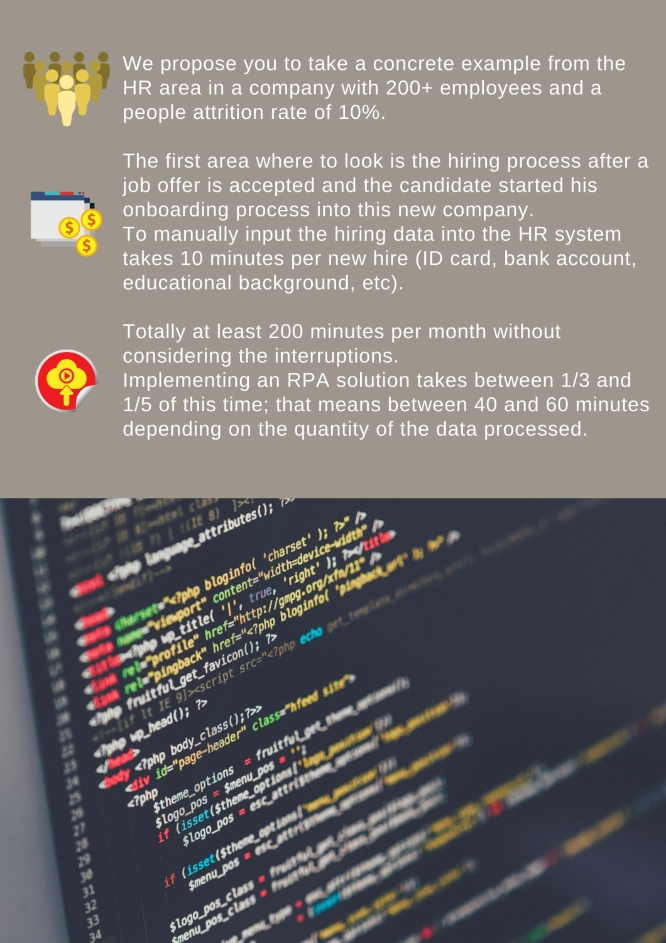HR in the RPA era
For the last years, we’ve read and heard on different channels that employers fight to attract and retain the best talents on the market. We’ve also heard about other workforce challenges that the market is facing: there are more job opportunities than people ready to accept it, a too limited expertise in some areas, the key employees are overload due to the number of vacancies in the company, 45+ years old professionals are struggling to change the jobs, RPA that threaten the existing jobs. All these in a context that predicts a decrease in the working population in the following years of 1 million people in Romania. In this context, the fight to attract the talents and to retain them will become even more difficult.
We propose you to look at all these as being just pieces of the same puzzle. This perspective will help you transform the challenges in solutions. What do we mean by this? It is very simple. Start to ask yourself the right questions:
- What are your key people delivering at this moment?
- What should they deliver considering their talent and expertise?
- What can they delegate considering their expertise level?
- To whom can they delegate these tasks?
- How much do we know about RPA benefits for our business?
- What are the tasks that can be performed by an RPA initiative?
- How much does this cost us? What is the return of investment?
And the questioning list can continue because when we start to ask ourselves the right questions, we start to think about solutions as well. Actually, with this limited set of questions, we found that the overload can be managed with the help of an RPA tool instead of prolonging the recruitment process for a position that we looked for months and the remaining colleagues are already disengaged doing so much.
Also, the robot can’t be disrupted by someone coming to discuss it with the HR representative. The investment in an RPA solution is recovered in 6-8 months of running.
This is not the only process in HR that can be run by RPA. Does this mean that we don’t need HR professionals after implementing RPA? No, this is not the reality. Actually, with the difference of 140 minutes, the HR representatives can perform human-2-human interactions that the employees require so much or they can generate reports on people living cycle in our organization that will better support the decision making in the business.
If we move the attention to other departments where volumes of documents need to be processed, we might discover that we can bring days of effectiveness and productivity of our colleagues that are performing now those tasks. Because they will gain time to perform adding value tasks.
It seems that more than 70% of finance organizations have piloted or are actively using RPA, according to Gartner.
Indeed we can’t see anymore the financial departments with 20 people manually inputting the invoices in the accounting system. Implementing RPA in each and any area, will force our colleagues to develop their critical thinking, interdisciplinary knowledge, complex problem solving, skills that are developed in time with years of experience and project’s exposure.
But all these business transformation initiatives need to be implemented:
- with the right business scanning,
- with the right process improvement mindset,
- with the right expertise and technology,
- with the right communication and change management practice.
Missing just one of them will bring more overload, uncertainty, and people attrition in your business.
We already implemented some RPA projects that brought values to our clients and we are fully committed to supporting others.

